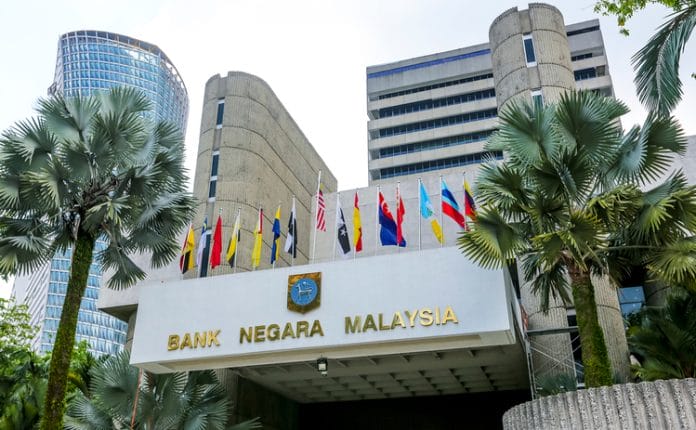Foreign investors continued to buy into Malaysia’s debt for the second month in a row, with a net investment of RM0.6b in April (Mar: RM1.7b), driven by strong demand for Malaysian Government Securities (MGS)
Consequently, total foreign debt holdings rose to RM266.4b in April (Mar: RM265.8b). However, its share of the total outstanding debt fell slightly to 13.0% (Mar: 13.1%), its lowest level since June 2020. This was mainly due to new issuances and reopening of MGS and Government Investment Issues, totalling RM19.5b.
On April 9 and 10, foreign investors accumulated a total of RM2.7b in Malaysian bonds, partly influenced by the positive domestic industrial production data. However, in the following week, from April 15 to 16, they divested RM1.4b due to the Iran’s unprecedented attack on Israel over the weekend and hotter-than-expected inflation readings in the US. Another RM0.8b was net sold after the core PCE number came in higher than consensus.
Foreign investors are increasingly buying MGS, yet they have been net sellers of corporate bonds and sukuk (CBS) as well as Malaysian Islamic Treasury Bills (MITB). MGS (RM1.1b; Mar: RM0.8b): third straight months of net foreign buying. However, the foreign holdings share continued to decline to 32.8% (Mar: 33.2%), its lowest level in 13 years. CBS (-RM0.4b; Mar: -RM0.2b): outflows doubled, attributed to net selling in both the sukuk and bond space. As a result, foreign holdings share edged down to 1.5% (Mar: 1.6%). MITB (-RM0.2b; Mar: RM0.1b): reverted to an outflow after last month’s net buying, resulting in the foreign holdings share shrinking to 3.2% (Mar: 3.7%).
Although at a slower pace, foreign investors continued to sell off Bursa Malaysia equities for the second consecutive month in April (-RM1.4b; Mar: -RM3.0b). Amid US economic uncertainty and geopolitical conflicts, foreign investors have shifted away from Malaysian equities in the first three weeks of the month. A record RM1.6b in outflows was recorded during the third week of April, primarily driven by the divestment of financial services stocks.
The capital market recorded a net foreign outflow of -RM0.8b, marking the second consecutive month of outflows, albeit at a smaller scale compared to March’s -RM1.3b. Domestic debt market set to benefit from favourable macro environment for risk assets
Despite the uncertainties from current geopolitical conditions and US inflation concerns, we remain optimistic about the prospects for Malaysian financial assets, especially local government bonds, buoyed by renewed confidence in potential Fed rate cuts. We expect further weakening of the US economy, especially in the labour market, which may lead the Fed to initiate its first rate cut in September.
Investors seeking higher yields may start reallocating their portfolios, potentially benefitting the Malaysian debt market as funds shift from the US to emerging markets (EM). While EM assets typically offer high yields, they are also associated with greater volatility. However, in Malaysia’s case, the expectation of stable inflation rates, unchanged monetary policy, and the potential for the ringgit to appreciate to its fair value make local government bonds appealing to foreign investors.









